Peanut Butter milk has come to light as a possible challenger for consumers looking for a non-dairy choice as plant-based milk substitutes continue to grow in popularity.
To help you pick the best peanut butter milk, we’ll go over all you need to know about it in this post, including its nutritional advantages, flavor comparisons, production processes, and more.
What Is Peanut Butter Milk?
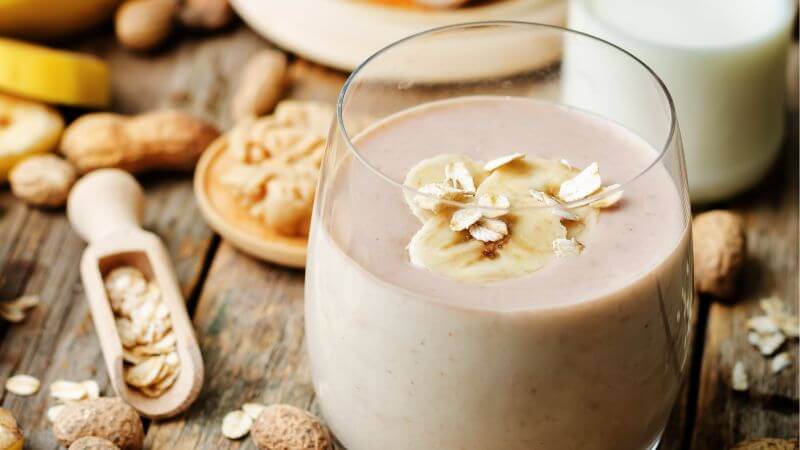
A plant-based beverage known as “peanut butter milk” is made from peanuts, water, and occasionally salt and sugar.
It’s a well-liked beverage throughout Asia, notably in China and Vietnam, where it’s frequently served on the street.
Peanut milk comes in a variety of forms.
Some are created with raw peanuts, giving them a pale color and a very faint flavor, while others are made with roasted peanuts, giving them very nutty milk.
With 6 to 8 grams of protein per cup, peanut butter milk has the advantage of being a healthy source of protein.
It is a wonderful choice for folks who are controlling their weight or attempting to consume fewer animal products because it is likewise lower in calories and fat than dairy milk.
An excellent option for those with lactose sensitivity or who consume a plant-based diet, peanut milk is also naturally vegan and lactose-free.
Invention Of Peanut Butter Milk

The modern originator of peanut butter milk was most likely George Washington Carver, a well-known botanist, scientist, conversationalist, and professor in the early 1900s.
George was renowned for his insightful studies on the peanut and had a keen interest as well as exceptional aptitude in physics and chemistry.
He discovered several uses for the nut, including peanut butter milk, by the separation of the peanut’s lipids, oils, gums, resins, and sugars.
The Rise Of Plant Base Milk Alternative
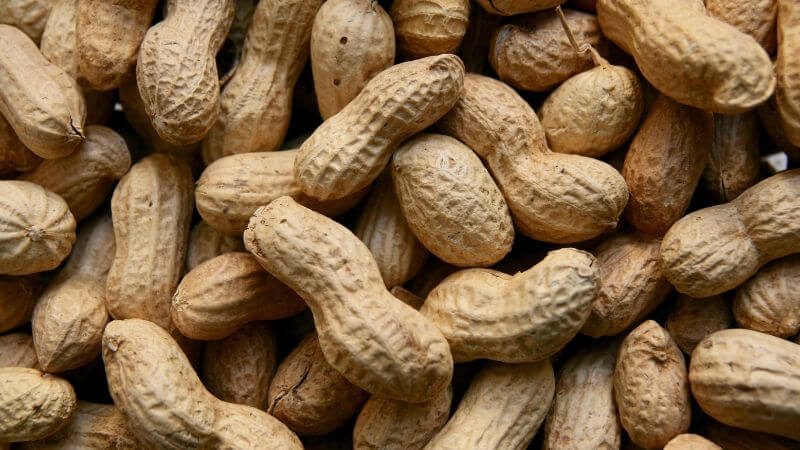
Almond milk, soy milk, and oat milk have emerged as domestic constants as the acceptance of milk substitutes made from plants has risen in the past few decades.
The change is mainly a consequence of people becoming more interested in dairy-free alternatives.
This is due to medical issues such as an allergy to lactose or an impulse to ingest less animal-derived products.
Farming of animals has been associated with forest clearing, emission of greenhouse gases, and various other detrimental effects, which raises ecological concerns.
Substitutes to cow’s milk made from vegetation, such as peanut butter milk, are more hygienic and kinder to the environment.
Plant-based milk replacements give clients an expanded selection of aromas and alternatives alongside their nutritional and ecological benefits.
For those who want a tropical flavor, coconut milk is a frequent alternative; however, cashew milk has a creamier viscosity.
Some milk alternatives made from plants are additionally loaded with minerals as well as vitamins, rendering them an advantageous choice for individuals who may be insufficient in vital nutrients.
In the decades to come, we may be going to keep seeing fresh and inventive milk substitutes reach marketplaces due to the increased need for organic solutions.
Benefits Of Peanut Butter Milk
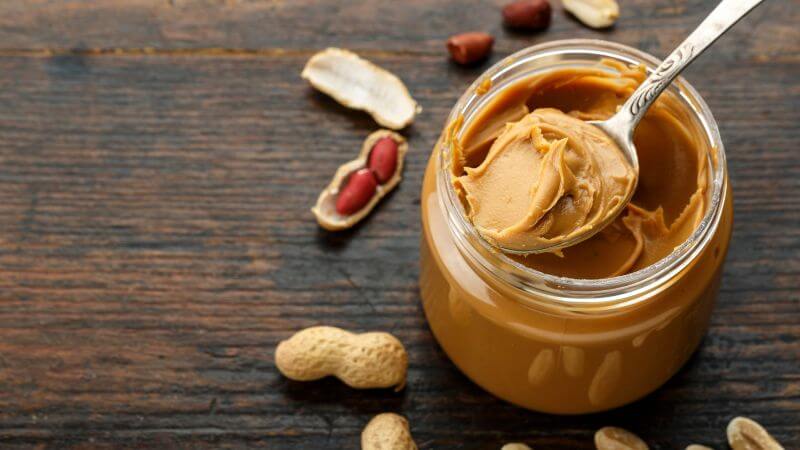
-
Able To Decrease Cholesterol Stages
The beneficial oils found in peanuts can raise the amount of beneficial cholesterol while minimizing the quantity of harmful cholesterol, supporting cardiovascular wellness.
-
Abundant In Proteins
Consuming nuts, which are abundant in both fiber and protein, could assist with making you feel content for extended.
Due to its capacity to encourage a decrease in weight when swallowed responsibly, peanuts often have a connection with dietary loss.
This is attainable because the considerable amount of protein in peanuts helps to keep you packed for longer.
This enables you to consume a smaller quantity of other foods by limiting back on their consumption.
-
Lowers Blood Pressure Level
Magnesium and potassium, two vital elements that might help regulate blood pressure, are found in peanuts.
-
Suitable For Diabetes
Peanuts are a good source of unsaturated fats and other nutrients.
Peanut butter milk is regarded as a healthy alternative for diabetics since it can lessen the chance of developing type 2 diabetes.
But also assists the body in regulating insulin, the hormone that reduces the amount of glucose (a form of sugar) in the blood.
Due to the low glycemic index of peanuts, consuming peanut butter milk won’t result in a significant rise in blood sugar levels.
-
Strengthen The Bone
Peanuts are rich in minerals like manganese and phosphorous and therefore consuming peanut butter milk can help strengthen the bones and maintain better bone health as we age.
-
Rich In Vitamins And Minerals
Antioxidants abound in peanuts, which include large quantities of polyphenolic antioxidants, isoflavones, phytic acid, etc.
These anti-oxidants aid in lowering the chance of acquiring cancer and other illnesses.
-
Reduce The Risk Of Diseases
Peanuts are rich in antioxidants and contain high concentrations of polyphenolic antioxidants, isoflavones, phytic acid, etc.
These antioxidants help reduce the risk of developing cancer and other diseases.
-
Better Heart Health
Peanuts contain unsaturated fats and can help lower cholesterol levels.
Consuming peanut butter milk can thereby also help reduce blood clots from forming within the body in turn preventing and reducing the risk of heart attacks and stroke.
Steps To Make Peanut Butter Milk At Home
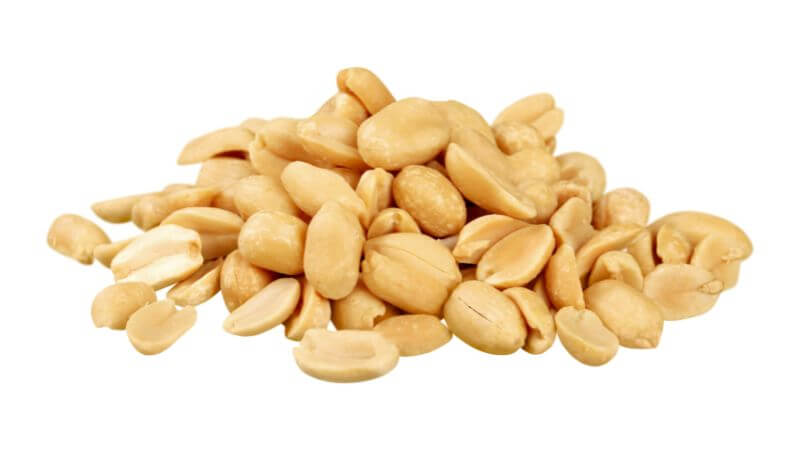
- A single serving of raw, unsalted peanuts should be set aside in a big dish.
- Freshwater should be poured into the serve until all the peanuts are submerged. Peanuts that have been roasted are another option to consider in place of the unsalted types.
- To grow twofold in size, let the peanuts rest for a minimum of six to eight hours. The vessel should have a covering on it.
- The most beneficial course of behavior, though, is probably to leave them overnight. The subsequent move is discretionary.
- Instead of immersing the peanuts, you could simmer them with some water for a minimum of five minutes, then let them settle.
- Get a blender, add the water, along with the boiled or soaked peanuts, to the container. It is ground into a fine paste. Until the desired consistency is reached, you can still add water.
- Use less water to make the milk thicker. Add extra water to create the thinner version.
- Try to squeeze out all the peanut milk from this mixture by pressing it with cheesecloth.
- After completion, put this in a glass container and freeze it. The milk can be kept for up to four days.
Never forget, though, that peanut butter milk is not a diet beverage despite having extremely high nutritional advantages.
For instance, one serving of this peanut has about 50 calories and 11 grams of fat.
However, according to the labels, its chocolate variation is packed with approximately thirty calories.
A serving of almond milk has roughly 60 calories, thus this is actually a rather large number of calories.
However, if you consume your preferred peanut beverage in moderation, it will unquestionably be a nutritious, healthful option.
Even from an environmental standpoint, the manufacture of peanut butter milk is far more environmentally friendly than the production of the most popular almond milk.
One ounce of peanuts requires less than five gallons of water to nurture, but one ounce of almonds need over eighty gallons.
Peanut butter milk has several applications, ranging from adding it to morning tea/coffee to enjoying it with cereal or even using it as a cooking element in a variety of delectable dishes.
And it is now widely regarded as one of the greatest plant-based milks in the world.
The Environmental Impact of Peanut Butter Milk Production
Although plant-based milk substitutes may be more environmentally friendly than dairy milk, it is important to take into account how each manufacturing process affects the environment.
Although producing peanuts has a relatively minimal environmental effect, producing peanut butter milk uses resources like water and electricity.
Additionally, certain kinds of peanut milk could employ packaging that isn’t composted or recyclable.
Look for companies that value environmentally friendly practises to reduce your environmental impact.
The Future Of Peanut Butter Milk Industry
The market for peanut milk is expected to expand as more people look for dairy-free options.
In fact, it is predicted that the market for peanut buttermilk would surpass $100 million by 2027.
The rivalry from other plant-based milk substitutes and fluctuating peanut prices, like in any sector, pose significant threats.
It will be interesting to watch how the peanut butter milk market changes over the next few years.
Summary!
In conclusion, peanut butter milk is a flavorful and nutritive substitute for dairy milk that has a special range of advantages.
There are many alternatives available to fit your taste and budget, whether you decide to create your own peanut butter milk or purchase it from a shop.
It’s always a good idea to speak with a healthcare provider before making any dietary changes to ensure that peanut milk is a safe and healthy option for you.
Follow Us: Facebook | Instagram | Twitter | Pinterest








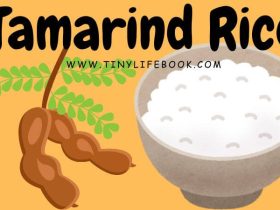
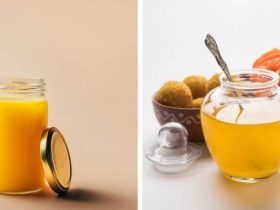

Leave a Reply